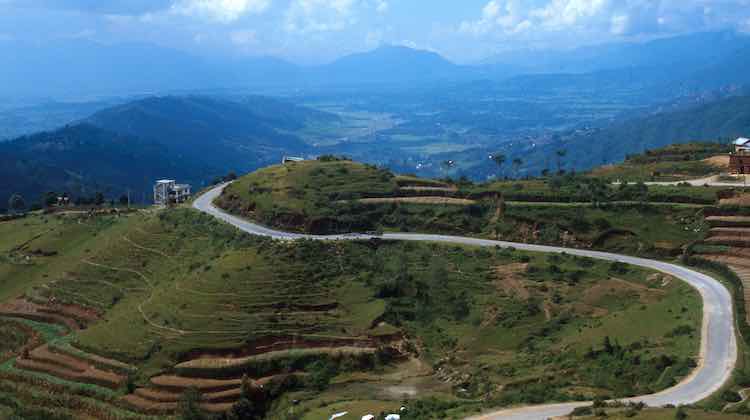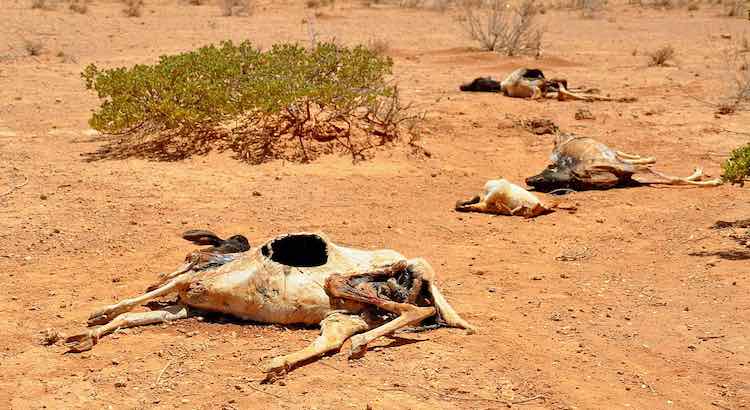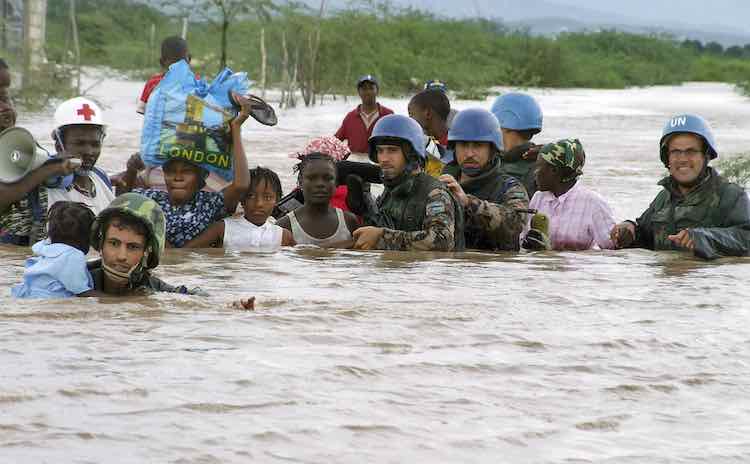Climate change is a hot topic (ahem!) at the time I write this (October 2019). It is evident that the world and politicians are deeply divided about it and passions run deep.
Christians are polarised too. Some believe human beings have the responsibility to care for God’s earth, and that means averting the worst effects of climate change, but others believe it is all a left wing hoax which christians shouldn’t get caught up in, but should focus on the gospel.
This is the first page in a series on climate change, written specially for christians who wish to be better informed on the subject. I am trained as an engineering hydrologist, and for most of my working life I was involved in managing the water cycle in rivers and catchments in NSW, Australia. I am not a climate expert, but I have a good background in the subject, and in climate data and models. (These pages are a 2019 update of blog posts first written in 2012.)
In this first page, we’ll consider why I think this is a matter christians should be concerned about and actively supporting a change in government policies.
The world is warming
As we will see in the next few pages in this series, the scientific data quite definitely shows that the world is warming up, and the last decade has been the warmest on record. This has four clear effects:
- A change in weather patterns.
- A rise in ocean water levels.
- Increasing melting of ice.
- More extreme weather events – fiercer storms, larger floods, longer droughts.
So why should christians be concerned about these effects?
It will affect western countries
The effect will depend on where we live. For example:
- Those living on seaside land will experience higher tides, stronger storms, and quite likely greater storm erosion of their seafront.
- Some current agricultural land (e.g. much of south eastern Australia) will become drier and less productive. Many farmers will struggle to maintain their farms and their income.
- Bushfires (or wildfires) will be more frequent and more intense.
- Flooding of urban areas, roads, etc will become more frequent in many places.
- Some ski fields will have less, or no, snow cover.
Most of these problems will cost us wealth and amenity. First world countries will generally have enough resources to cope, though standards of living are likely to fall slightly. Christians will be affected like everyone else.
It will be disastrous for some struggling countries
Climate change will have an enormous impact on many countries, and is already beginning to do so. For example:
- Millions of people living in low-lying parts of Bangladesh will experience increased flooding due to changed monsoonal weather patterns, increased river flooding, sea level rise and worse cyclones. At the same times, drought will increase in many parts of the country.
- I have a friend who spent several years in Nepal doing aid and development work, and he found that the summer rains are coming later and over a shorter period, increasing soil erosion and reducing the water available at the crucial stage for the crops. This is potentially disastrous for subsistence farmers in a poor country.

- At the opposite extreme, drought, famine and devastation are no strangers to many parts of north Africa. Yet as climate change bites, there will be reduced rainfall across large areas of Africa, making the problems even worse.

- Many Pacific Island nations are low lying. Rising ocean levels will result in many being affected by flooding, storm damage and salination of groundwater supplies. Some will likely become unlivable.
Climate change will destroy some species’ habitat
As the oceans heat up and ice melts, habitats change. The polar bear is especially at risk. Polar bears live and hunt on the Arctic sea ice, which has lost 40% of its summer area in 40 years. Unless something is done immediately, summers could be sea ice free within a few decades.
Christian responsibility
We are stewards of God’s world, and we have special responsibility to care for the poor, the weak and the helpless. Large areas of God’s creation are facing destruction by climate change, and millions of people face a bleak future. That is why christian aid organisations like TEAR and World Vision are actively campaigning on behalf of poor nations for action on climate change.
Even if the cause of climate change was totally natural, it would be a natural disaster on an unprecedented scale, and God’s love would compel us to act.
But the scientific studies show that human impacts are the most significant cause, as we’ll see in later pages.
Christians should care deeply about climate change.
Should the “gospel” be our priority?
I have often heard christians say that we shouldn’t be worrying about the climate, God will take care of it. We should be giving our priority to the gospel. I have several responses to this.
- It is a very narrow definition of the good news about Jesus. Jesus came to establish God’s reign on earth, and that includes everything.
- Jesus said the second of the two greatest commands is to love our neighbour. If climate change is going to harm many people, then we must be concerned.
- I have never heard anyone seriously suggest we should not work so we can focus on the gospel, nor that we shouldn’t mow our lawns to focus on the gospel. I don’t think I have even heard anyone say we should give up ever watching football on TV so we can focus on the gospel. And the reasons are obvious – we can multitask. We can do both! So we can “preach the gospel” and combat climate change.
- Christians have different gifts and callings. Some people are called to more directly evangelise, some to care for the sick, some to drive buses, some to teach children, and so on. Some are called to care for the environment.
As a body of believers, let’s all play our part to do all we can to care for God’s world and every person who lives in it, and see God’s reign in the lives of everyone willing to follow Jesus.
Next: Is the world really heating up?
Photos (in order):
Jordanian UN peacekeepers rescue children from a flooded orphanage after the passing of hurricane Ike (United Nations)
Agriculture in Nepal (Wikipedia)
African drought (Oxfam)
